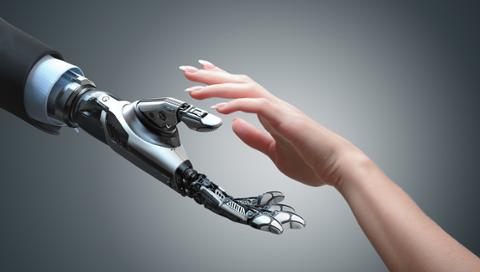There’s been a lot of chatter this week about ChatGPT and Bard, rival chatbot platforms that could soon enhance the search engines of both Google and Microsoft. ChatGPT is also capable of writing code in response to a query, leading to a huge worry among tech professionals: Is A.I. finally coming for their jobs?
In the minds of the most paranoid, the future looks something like this: anyone who needs software will merely ask an A.I.-powered tool, which will instantly spin up the bulk of the necessary code. Presumably, this sophisticated tool will also iterate and debug as necessary. Companies will no longer need more than a handful of human developers and engineers (if that) for coding work.
That’s a scary scenario, but it seems unlikely to happen, at least anytime soon. It’s important to keep in mind that software vendors have already spent the past several years pushing no- and low-code tools, allowing virtually any employee to quickly spin up simple apps and services (at least in theory), and yet nobody seems concerned about that technology devouring tech professionals’ jobs. No- and low-code tools might save their users time and effort on a narrow range of tasks, but they’re incapable of assisting in more complex efforts, such as diagnosing a network issue, managing a database, or creating a sophisticated piece of enterprise software.
You can make a similar argument for why an improved generation of chatbots won’t fatally undermine tech unemployment. Even building a relatively straightforward piece of software requires a mix of technical and “soft” skills. Depending on the requirements and scope of a project, a software developer or engineer might need to use two (or more) programming languages along with a variety of tools; they must also understand how their project will integrate into their organization’s larger tech stack, and whether the ultimate result will align with the end users’ goals and needs.
While ChatGPT (produced by OpenAI and funded in large part by Microsoft) and possibly Bard (Google’s rival chatbot) can write code and even debug, these platforms don’t understand a project’s broader context. A software developer or engineer could use these tools to generate code more quickly, but that won’t miraculously result in a finished product; we’ll still need human beings to do literally everything else.
For software developers and engineers who want to “future-proof” their careers, it’s important to adopt skills beyond coding. Master skills like project management, and consider whether to pursue specializations such as machine learning and DevOps that seem in perpetual demand (and come with elevated compensation).
For other tech professionals, keep an eye on how ChatGPT and Bard can impact the coding-centric aspects of your job—but also remember that nothing beats a human being when it comes to having a holistic grasp on code (and coding projects). There might be a lot of hype around code-writing chatbots at the moment, but we’re a long way from a future of hyper-intelligent machines.



